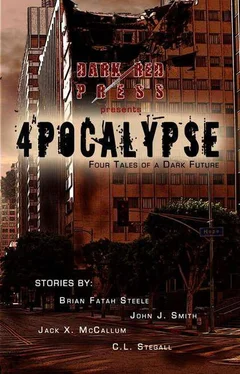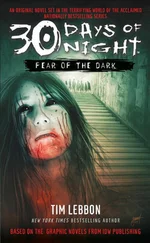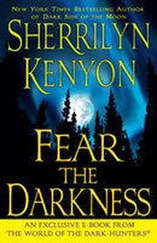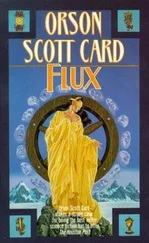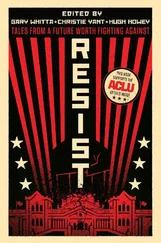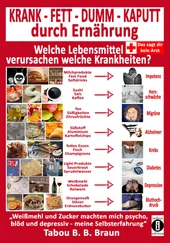As we searched the hotel for other survivors we found eight dead grins and two living ones; both were Latinas in maid uniforms. One was small, one was fat. They were easy to kill, and it bothered me that killing was becoming so easy, even if these things were too dangerous to live. They were still human beings.
The power was out in the city, but there were generators in the basement. Jillian spent about three hours down there on our first night, switching off what she called non-essentials one by one. We were using candles and battery-powered flashlights and lanterns. There was a Walgreen’s a block away. We raided it for everything from batteries to snacks, Tylenol to clothes; sweatshirts, sleep pants, and cheap sneakers.
The first to arrive was a homeless man, hammering on the door after the rain stopped, and it rained for two days straight. He said his name was Randall, and that was the only name he would give. He had a pit bull mix named Clyde. He stank, and Jillian, fully in charge by then, gave him a room number and sent him upstairs to a suite for a bath. “You’ll have to take the stairs,” she had said, from behind the reception desk. The Palace was less than ten stories high, and the stairways were spacious and stylish. “The water is cold, but the beds are comfy. The door will be held open by the security latch when you get there. Use the latch the same way when you leave or you’ll be locked out.”
All hotel room doors have electronic card readers instead of old-fashioned keys. With no power supply, this was a pain in the ass. Without power we couldn’t program new keycards, even if we did figure out passwords to the hotel’s internal computer systems. Jilly was the first to suggest we look for a master key card and use it to open every door we could, and chock those doors open. Sure enough, the master key card we had stopped working a few hours after we began using it. The card readers in the doors didn’t need power, they were battery operated — and rejected all of the now expired keycards.
The doors still worked fine. The card readers were powered by AA batteries. If you had a good card, you could enter a room. Otherwise most doors were still locked tight on the outside, but the locking mechanism only applied to the outer door handle. The inner handle could always be opened, a standard security feature.
Why am I boring you with this primer on hotel doors? Trust me, there’s a reason, one none of us considered until too late.
Randall went up the stairs with Clyde.
“He didn’t even say thanks,” Benjamin said.
I was thinking the same thing. I was also thinking Randall was a bit of an asshole.
“He didn’t have to,” Jillian said.
Two days after that we took in three more strays, an older Japanese man with a boy and girl who appeared to be in the eight to ten year old range. The older man was Isao Yamada. The girl was Haya and the boy was Haru. It seemed the only English words Isao knew were tourist and vacation. The kids didn’t know much more, but like kids anywhere they were quick to learn.
Benjamin had found a long vinyl banner from some corporate event. It was three feet high and thirty feet long. He also found some black paint and a brush. On the stark white back of the banner he painted The Survivor’s Club . He somehow managed to hang the thing from the rooftop cornice so it wrapped around the corner of Montgomery and New Montgomery, and he secured it so it wouldn’t blow away. He did all of this without saying anything about it. I noticed it when I went up to the suite Jillian and I shared on the top floor and saw the damned thing blocking the top half of the tall window.
When I asked him about it Benjamin shrugged and said, “I thought it might help.”
The day after the banner went up three more people came to the Palace.
Soledad and Marisol Morales were sisters from the Mission district. They were in their early twenties, pretty, tattooed and pierced, and nervous wrecks.
The sisters were almost completely dependent on Joe Conaghan, a black guy with a big belly and a shaved head. Conaghan was an electrical engineer for Pacific Gas & Electric. When Jillian heard that her eyes lit up, pun intended.
From time to time we heard gunshots and distant screams. It was so quiet inside and out that we could hear footfalls in the street if someone ran by outside and we were near a window or door. Further inside the fortress-like bulk of the hotel it was as quiet as a forgotten tomb.
Grins passed by from time to time, wandering the streets or sitting on the sidewalk for minutes or hours before moving on. We worked hard to avoid attracting their attention. From the high window of our suite I watched a grin come up Montgomery Street. It was a tall man in a gray suit that was mottled black with dried blood. His torso had been cut open and his guts, now hard, encrusted tubes, hung stiffly between his legs. His blue tie flapped in the hollow below his ribs. He turned south on Market Street and made it another block before falling and lying still.
Unlike the zombies of film lore, these things could die without any intervention. If we could wait it out long enough, attrition though disease, injuries and exposure to the elements would remove infected citizens from the equation. How long that would be was the question.
At the end of our first week in the Palace our group counted a dozen with the arrival of Darryl Haise and Corey Renfield.
Jillian and Joe Conaghan were up on the roof working on an electrical panel. I was with Benjamin in one of many secure storage areas in the basement sorting through boxes and cases of personal items and emergency supplies that had been left behind, when we heard the faint and distant sound of Clyde barking.
The dog was earning his keep, guarding the shattered front door we had barricaded with the couch and soda machine, a safety measure Conaghan had described as half-assed, but he had been smiling when he said it and that made me like him.
We were using two-way radios all set to the same channel, and I asked anyone if they knew why Clyde was barking. No response. Benjamin and I went upstairs. I passed by the Garden Court and saw Isao sitting at one of the tables, reading what had to be a Japanese-English dictionary.
“Good-uh, to meet… you,” he said
“Likewise,” I replied.
His boy and girl were behind the reception desk. They were bored. Their MP3 players and phones had dead batteries and could not be recharged, at least not at this time, according to Jillian, so no more games or music for them.
The Morales sisters were probably upstairs in the room they shared, sleeping. They slept a lot. Jillian said it was their way of dealing with the shock of all that had happened and that with luck, sooner or later they would come around. We checked on them often, Benjamin volunteering most frequently for that duty, but we didn’t have time to play nursemaid, there was just too much to do.
I saw Randall slouched in a plush chair on the far side of the lobby. He called Clyde to him when he saw me heading for the door.
There were two men at the door. One was wearing an SFPD uniform. The other was wearing a green coverall. The cop was tapping one the doors with the butt of a Glock.
I unlocked one of the doors from a big ring of keys we’d found behind the reception desk, and let the men in.
“Man, am I glad I found you,” the cop said. And then, when he got a good look at me, “Jesus, what the fuck happened to your face?”
“Cut myself shaving,” I said, when I wanted to toss a dollar at him and tell him to go back out and buy some fucking tact.
I introduced myself as I locked the doors, and that’s when I noticed that the man in the coverall had his hands cuffed behind his back. On the back of the coverall was a logo. It showed a winged insect flying away and looking back in horror. Below the illustration was a phone number with a 415 area code and a web address, and above it was the name of the company, Pest Off!
Читать дальше
